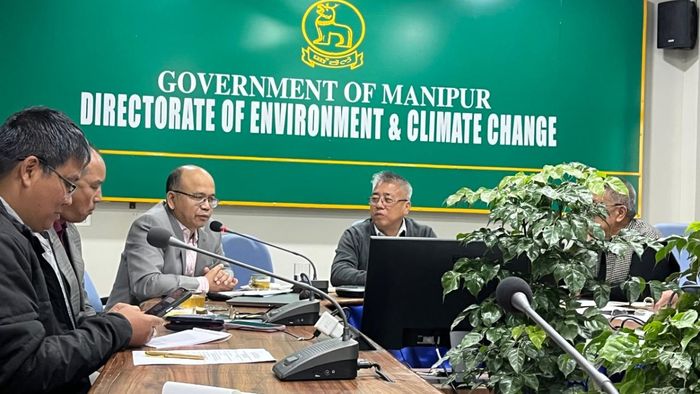Manipur sees dengue rise amid climate shifts, health officials call for collective fight
Manipur is witnessing dengue spreading into new areas due to shifting rainfall patterns and rising temperatures, Joint Director (Planning) of the Health Services Directorate, Dr. Y. Premchandra Singh, said on Tuesday.

- Nov 25, 2025,
- Updated Nov 25, 2025, 8:25 PM IST
Manipur is witnessing dengue spreading into new areas due to shifting rainfall patterns and rising temperatures, Joint Director (Planning) of the Health Services Directorate, Dr. Y. Premchandra Singh, said on Tuesday.
Speaking at an interaction programme with media fellowship recipients on climate change reporting, organised by the Directorate of Environment and Climate Change, he stressed that the state now faces clear health impacts linked to climate change and requires a collective effort to tackle them.
Dr. Premchandra said Manipur is increasingly experiencing extreme rainfall, higher temperatures, flooding, vector-borne diseases and even climate anxiety. While climate change does not directly cause diseases, it “creates pathways that worsen health risks”, he said. High humidity and stagnant water have created ideal breeding conditions for Aedes mosquitoes, allowing dengue cases to persist even as November draws to a close.
Highlighting broader climate-related health concerns, he noted that heatwaves increase dehydration, heat stroke and heart strain; floods contaminate water sources and fuel infections; high humidity boosts mosquito populations; air pollution worsens asthma and COPD; and food and water insecurity rises as climate patterns destabilise.
The health official also emphasised the vulnerability of people with diabetes to climate disruptions. Rising temperatures worsen dehydration and push up blood glucose levels, while essential insulin refrigeration becomes difficult during heatwaves, flooding and power outages. Disasters also interrupt access to medicines and routine medical follow-up, making patients “highly climate-sensitive”.
As climate change becomes an unavoidable reality, Dr. Premchandra urged both public adaptation and departmental mitigation measures to reduce health risks. The Health Department, he said, will take necessary steps to address climate-linked challenges whenever possible.
Director of Environment and Climate Change, T. Brajakumar, echoed the concerns, calling climate change one of the greatest threats to human health in the 21st century. He said its impacts are both direct — through heatwaves, floods and extreme weather — and indirect, through deteriorating air quality, shifting disease patterns, unsafe water, food insecurity, inadequate shelter and rising mental health stress.
Brajakumar stressed the need to develop an indicator-based vulnerability index for Manipur’s health sector using the Intergovernmental Panel on Climate Change (IPCC) risk framework to identify and prioritise health hotspots across districts. He said the workshop aims to equip media fellows with a deeper understanding of the health sector’s climate risks.
The programme was attended by senior editors and seasoned journalists from across Manipur.